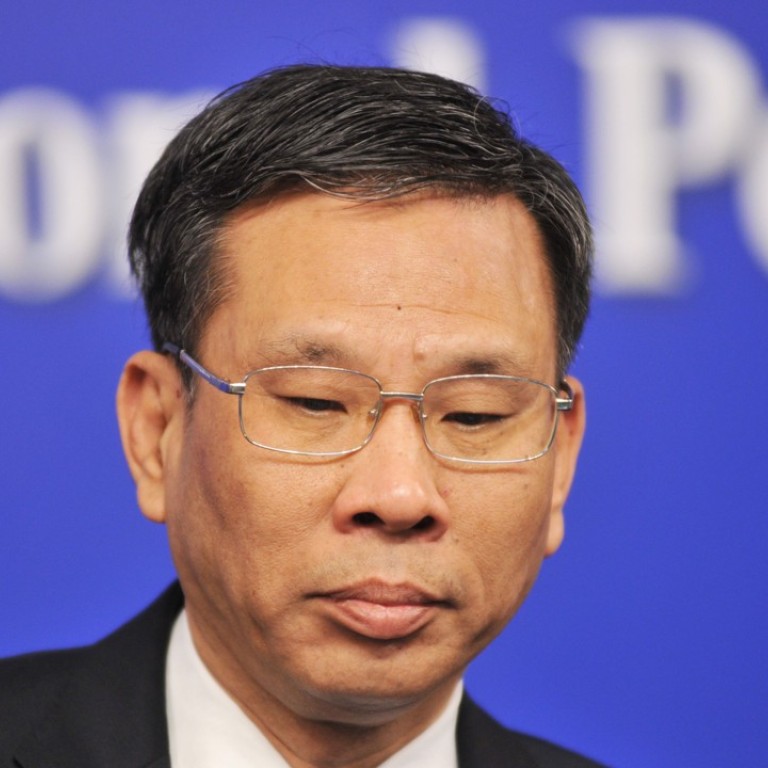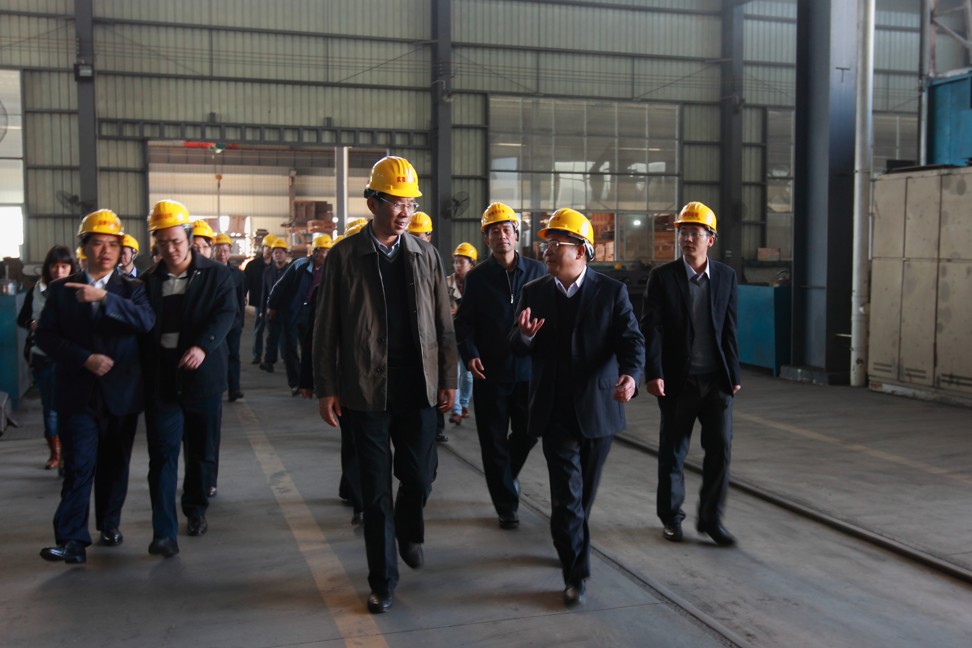
Can China’s new finance chief deliver on Xi’s promise of a fairer society?
After 30 years trying to close the wealth gap in Guangdong, Liu Kun knows all about taking from the rich and giving to the poor
Beijing has broken with tradition and named a low profile official to head up its finance ministry and manage an annual flow of about US$5 trillion worth of government funds.
The appointment of 62-year-old Liu Kun as China’s new finance chief is surprising as he is the first person in decades to be given the position without being a member of the Communist Party’s Central Committee, although he is a member of the Central Commission for Discipline Inspection.
In his first public speech on Sunday, Liu told a government forum in Beijing that he would push for “high quality growth”, Beijing’s term for a cleaner and fairer economic model, with the focus on budget management and tax reforms, according to a Reuters report.
Liu moved to Beijing in 2013 to take up the position of deputy finance minister after spending more than three decades working in Guangdong province.
In 2016, he was named director of the budget committee at the National People’s Congress Standing Committee, a non-decision-making role, but one that gave him a bird’s-eye view of the country’s fiscal landscape.
Liu was not long out of university when he started work in the southern powerhouse, but rose to become its vice-governor. It was the frontline experience he gained in the province that brought him to the attention of the nation’s leaders.
A government researcher in Guangdong who has followed Liu’s career told the South China Morning Post that his selection as finance minister was likely a result of the skills he showed in balancing regional development while narrowing the wealth gap.
“Guangdong has the country’s richest and poorest places,” and Liu was chosen for his “deep and comprehensive understanding” of inequality, the person, who declined to be named, said.
Reducing financial risk and eliminating poverty are two of President Xi Jinping’s priorities for his second term of office, so Liu’s apparent ability to tackle both doubtless stood him in good stead.
An opinion piece in the official Securities Times, described the new finance minister as a good choice for the job because of his political reliability, and his understanding of the viewpoints of both local and state government.
In 2009, when the global financial crisis hit Guangdong’s huge export sector, Liu, who was head of the province’s tax bureau at the time, responded by advocating increased public spending, especially in the poorest parts of the province.
“Compared to monetary policy, fiscal policy has the advantage of being able to control economic operations,” he said at the time. “China’s fiscal policies are particularly good at addressing the defects of a market economy.”
In 2016, as a deputy finance minister, Liu set up a task force to investigate the apparent lack of private investment in the country. His conclusion was that private firms faced discrimination from local governments and he said that state financial institutions were not helping.
“Banks hand out umbrellas when it’s sunny, but take them back when it’s raining,” he said.
Liu’s ability to balance the nation’s budget will be put to the test as he seeks to deliver on Xi’s goal to reduce poverty.
Much of his work will involve the redistribution of funds collected from wealthy coastal areas to poorer regions, such as the rust-belt region that borders Russia and North Korea. Despite the size of his task, he will have plenty of money to work with, as China’s fiscal revenue has more than tripled over the past decade.
According to the country’s budget report released this month, fiscal revenue rose 7.4 per cent in 2017 to 17.3 trillion yuan, while total government revenue, which also includes money from land sales and social security contributions, was close to 29 trillion yuan and is forecast to rise to 32 trillion yuan this year.
Lawmaker Yin Zhongqing told the Post that another challenge Liu would have to face was managing the country’s debt problems.
China’s “hidden and disguised” local government debt was “at least 20 trillion” he said, which is more than double the officially acknowledged figure.
According to his official biography, Liu worked in a factory during the Cultural Revolution but went to university in 1978 when then paramount leader Deng Xiaoping reintroduced the college entrance exam.
One of his classmates at Xiamen University, in the southeastern province of Fujian, was He Lifeng, the current chairman of the National Development and Reform Commission.



